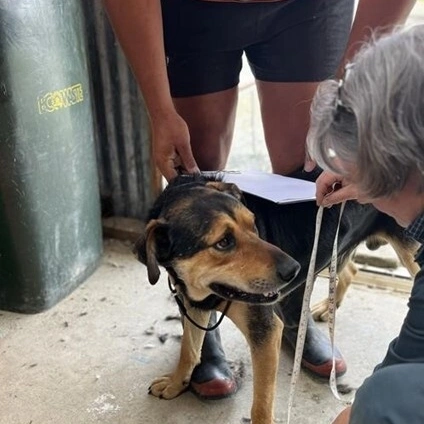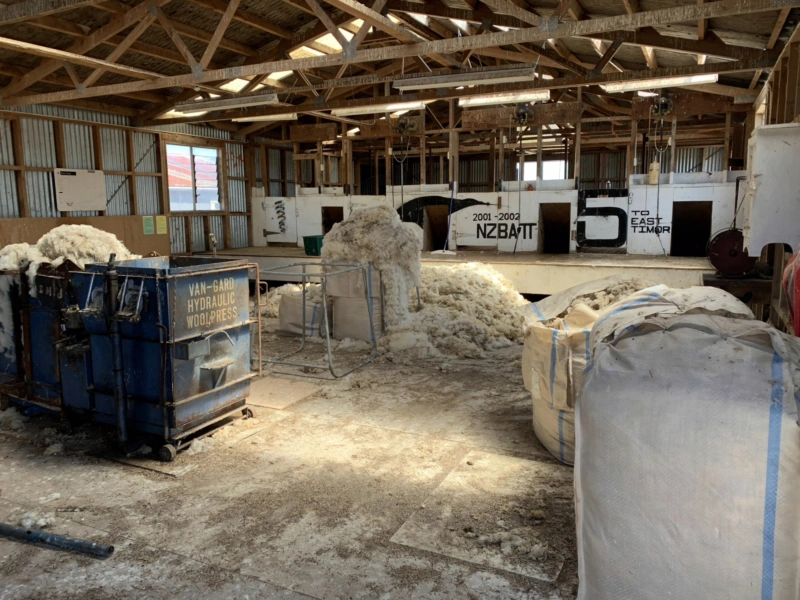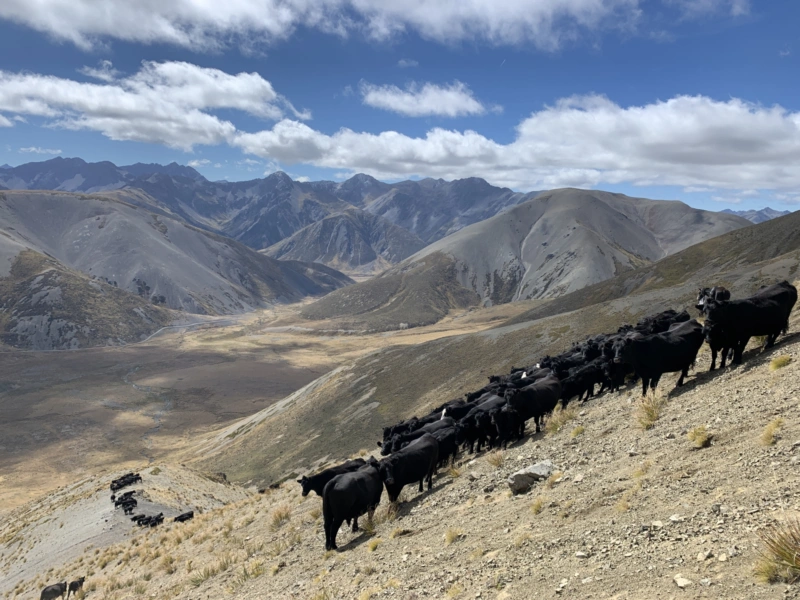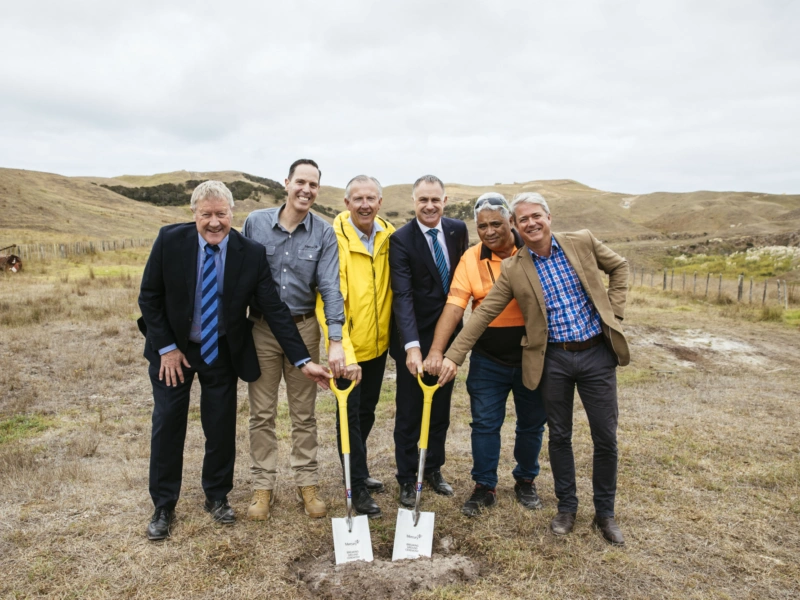More than 200 working dogs from Pāmu farms around the country are the first to provide their DNA to Massey University for a project to protect the future of the New Zealand working dog breeds.
The project, led by Professor Matt Littlejohn at Massey’s AL Rae Centre for Genetics and Breeding, seeks to link working dogs’ DNA to their health and performance. Co-funded by MPI through the Sustainable Food and Fibre Futures Fund, the project is supported by Pāmu, Focus Genetics, and other industry partners.
The first phase of decoding what New Zealand working dogs are made of is in the bag, with blood samples, cheek swabs and detailed questionnaires on each dog gathered for analysis. While genetic work has been carried out on many pet breeds of dogs around the world, it’s the first time New Zealand’s unique working dogs have been mapped.
Dr Melissa Stephen, Senior Research Officer at Massey University, explains that there are already known medical conditions showing up in some huntaway and heading dogs. For example, many shepherds have expressed an interest in conditions like twisted gut in huntaways, and if animals genetically susceptible to such problems can be identified, this information can help breeding decisions in the future.
“Having the genetic information from screening can help farmers breed from the best of the pack, and avoid passing on health conditions to the next generation of puppies,” she says.
There are two parts to the project. The first uses genome sequencing and requires blood sampling of the dogs. This approach gives a very high resolution of DNA which means “every single rung on the DNA ladder” can be analysed for hidden problems.
“This means that breeders of working dogs can have the information they need on a dog that looks healthy but carries a recessive gene, to make sure they aren’t bred with another dog that carries the same recessive gene that will then cause problems in their offspring.
“The other thing that we can look at with the DNA sequencing results is how much inbreeding has been going on, and to quantify the risks associated with this,” Dr Stephen says.
Thirteen Pāmu farms offered their dogs for blood and cheek swab samples for the project. Along with the samples, photos and measurements of the dogs were taken and shepherds were asked to fill out a questionnaire for each dog.
Seven dogs from Mt Hamilton near Te Anau were amongst the first to contribute to the study. Pāmu farm manager Thomas Scanlan said he was keen to be involved as he was really interested to find out more about his dogs, as well as to be part of improving the overall health of New Zealand working dogs in the long run.
Pāmu Chief Executive Officer Mark Leslie says, “Pāmu has a role in research and development. With our scale and geographical spread, we are perfectly positioned to support Aotearoa New Zealand science that benefits the wider sector and makes commercial sense. Innovation is the way forward to meet challenges and ensure farming excellence. As vital parts of the farm team, working dogs are a big investment in money, time, and training, and knowing the genetic profile of working lines will potentially have big advantages for shepherds and their dogs.”
Over the next couple of years, the programme aims to get more than 2,000 cheek swabs from more working dogs. Massey is partnering with Ancestry.com to provide the genotypes for these dogs. This information will be used to look for genetic links with working performance, the incidence of known genetic disease variants, as well as to better understand the heritage of our dogs.
“We are keen to use these tools not only to help ensure healthier puppies, but also to help with the long-term protection of these breeds,” said Dr Stephen.
For further information contact:
Kara Tait, Head of Comms & Engagement, Pāmu taitk@landcorp.co.nz +64 21 240 7827
Pictured below:
- Henry getting measured by NS Vet Jill MacGibbon on Waipuna farm in Southland.
- Farm Manager for Mt Hamilton Thomas Scanlan filling in the questionnaire.
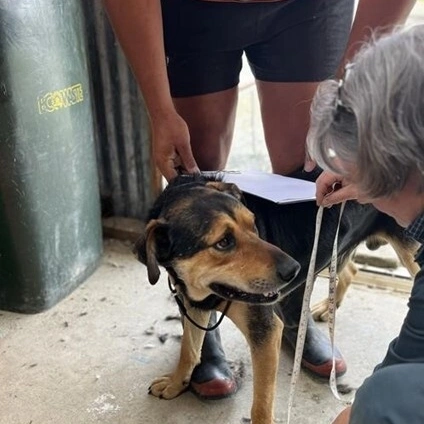
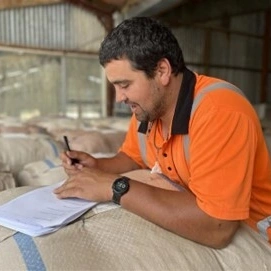
About Pāmu
Pāmu is the brand name for Landcorp Farming Limited, a State Owned Enterprise with more than 100 farms across the motu.
Pāmu exists today to enhance the future of agriculture for generations of New Zealanders to come, return land under Treaty of Waitangi settlements, and produce a financial return.
Pāmu strives for farming excellence. We are focused on running a profitable and efficient business, with an emphasis on innovating to be a sustainable, safe and responsible employer.
As a State Owned Enterprise, we are expected to be an organisation that exhibits a sense of social responsibility by having regard to the interests of the communities in which we operate.
